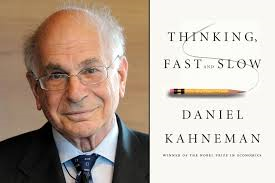behavioral economics
Every Day I’m Hustling, Or: What To Do For Earth Day?
Environmental Voter Project’s Election Engagement Is The Best Way To Celebrate The Day
What to do for Earth Day? For me, the answer is obvious: send 2,000 text messages. That is neither as difficult nor as ridiculous as it sounds. I do it most days, actually. For the last several weeks I have been volunteering with the Environmental Voter Project, to me one of the most interesting and …
Continue reading “Every Day I’m Hustling, Or: What To Do For Earth Day?”
CONTINUE READINGDo the Poor Undervalue the Environment?
The Emerging Sub-Field of “Envirodevonomics” Seeks to Find Out
It’s hardly news that environmental quality in the Global South is often disastrous. Even middle income countries such as China and India face enormous pollution problems and destruction of ecosystems. But why? Do people in the Global South not care? Or is something else going on? A new paper in the Journal of Economic Literature …
Continue reading “Do the Poor Undervalue the Environment?”
CONTINUE READINGCan Behavioral Economics Be Saved?
Statistical Manipulation Has Led To Embarrassing Results, But the Field Is Working Hard to Maintain Integrity
You might think that’s a funny question, because it is all the rage now in academia. Last month’s Harvard Law Review featured an article by Ryan Bubb & Richard Pildes arguing that behavioral economics does not go far enough. But an article in this month’s Pacific Standard by Jerry Adler reveals a growing problem with …
Continue reading “Can Behavioral Economics Be Saved?”
CONTINUE READINGThe Talmud and the Endowment Effect
The endowment effect is one of the most important aspects of behavioral economics. It postulates that losing something is worse than gaining something is good. One can easily see it applied to various aspects of property law: it is worse to lose a piece of property that you think is yours than to gain a …
Continue reading “The Talmud and the Endowment Effect”
CONTINUE READINGMayor Bloomberg and the Granny State, or: When is a Soda Ban Not a Ban?
Yes, that’s right: granny state, not — as conservatives are wont to call it — the nanny state. Dan’s thoughtful post the other day suggested but did not spell out an important theoretical implication of New York City’s prohibition on large servings of sugared soft drinks: it represents an almost-classic form of the “nudge,” the …
Continue reading “Mayor Bloomberg and the Granny State, or: When is a Soda Ban Not a Ban?”
CONTINUE READINGWhy Did Mono Lake Become a Cause Celebre?
Why did saving Mono Lake become such a potent political issue during the late 1970’s and early 1980’s? For a book I am currently writing on the case, that is a critical question. After all, hundreds of groups — hundreds of environmental groups — seek media oxygen for their cases all the time. Both nationwide …
Continue reading “Why Did Mono Lake Become a Cause Celebre?”
CONTINUE READINGUsing Disclosure as a Smokescreen: How Behavioral Economics Can Deflect Regulation
A key figure in behavioral economics recently issued a warning about over-reliance on its findings. In a NY Times op. ed, Dr. George Lowenstein raised questions about some uses of behavioral economics by government policymakers: As policymakers use it to devise programs, it’s becoming clear that behavioral economics is being asked to solve problems it …
CONTINUE READINGNudging Smart Growth
There are lots of problems with Sunstein and Thaler’s book Nudge, but its central premise has potentially powerful applications to a host of problems. Sunstein and Thaler posit that in many policy areas, “choice architects” can help people make better choices without impairing their actual ability to make that choice — a philosophy that they call …
Continue reading “Nudging Smart Growth”
CONTINUE READINGCass Sunstein Has Lost His Mind
I’m in the middle of reading Sunstein and Thaler’s Nudge: Improving Decisions About Health, Wealth and Happiness, and a lot of it is illuminating, if somewhat predictable for those who have followed behavioral economics over the last few years. But so far, by far the worst chapter has been the one on the environment, which …
Continue reading “Cass Sunstein Has Lost His Mind”
CONTINUE READING






